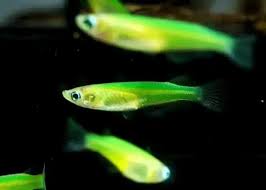
In Chinese mythology, dragons are majestic and powerful creatures that are intricately linked to various natural elements, especially those that influence the forces of the universe. While the dragon itself embodies many symbolic meanings such as strength, wisdom, and good fortune, its connection to the natural world is just as profound. From controlling the waters to commanding the winds and invoking rainstorms, dragons in Chinese legends represent a harmonious balance between celestial and earthly forces. This article will explore the key natural elements that are closely associated with dragons in Chinese mythology, and how these elements have shaped both ancient beliefs and modern interpretations of the dragon’s significance.
The Dragon and the Element of Water
The most prominent natural element that is often connected with dragons in Chinese mythology is water. Water plays a fundamental role in Chinese cosmology, symbolizing the flow of life and prosperity, and dragons are believed to be the ruling forces over bodies of water, such as rivers, lakes, seas, and oceans.
Dragons as Water Guardians
In Chinese culture, water is a life-giving force that nourishes the land, and the dragon is often depicted as the guardian of these waters. The Chinese dragon is often envisioned as living in the seas or hidden within the clouds, controlling the flow of rain and storms. This ability to command water makes the dragon a symbol of abundance and prosperity.
One of the most well-known mythological figures associated with water is the Dragon King (also known as Long Wang). The Dragon Kings are powerful beings who control the four seas: the East Sea, West Sea, North Sea, and South Sea. Each Dragon King is depicted as a wise and powerful dragon who can summon storms, create rain, and protect the waters from evil forces.
The Dragon King plays a crucial role in Chinese agricultural cycles, as the arrival of rain brought about by the Dragon King’s power is essential for crop growth and survival. For this reason, dragons are often revered during festivals and ceremonies that aim to invoke good weather for farming, and to ensure a bountiful harvest.
The Role of Dragons in Rainmaking Rituals
In ancient China, dragons were worshipped as gods of rain. The belief that dragons controlled the rain cycle was a significant part of many agricultural societies, especially in areas prone to droughts or famine. During times of need, farmers would perform dragon dances, dragon boat races, and other rituals in hopes of invoking the rain gods’ favor. These rituals were seen as necessary for maintaining the delicate balance between nature and human survival.
In the popular Dragon Boat Festival, which takes place every year on the fifth day of the fifth lunar month, the dragon boat races symbolize a tribute to the dragon for its role in ensuring good harvests. The festival, which includes dragon-shaped boats rowing through rivers, is both a cultural celebration and a form of rain invocation.
The Dragon and the Element of Fire
Fire, another crucial natural element, is also deeply associated with dragons in Chinese mythology. While the dragon is often linked to water, it also has dominion over fire, symbolizing transformation, vitality, and the life force itself.
The Dragon’s Fiery Breath and the Concept of Yang
In Chinese philosophy, fire is closely tied to the concept of Yang, the active, male, and creative energy that complements the passive and nurturing Yin. The dragon, being a representation of cosmic forces, is thought to embody this energy in its ability to create and destroy with its fiery breath. The dragon’s breath is often imagined as scorching flames that can either bring about purification and renewal or cause destruction.
The fiery aspect of the dragon is seen in many Chinese folktales, where the dragon is capable of producing fire that can either protect or consume. For example, in some myths, the dragon is a defender of the heavens, using its fire to battle demons or other malevolent spirits. In other tales, dragons are depicted as guardians of sacred places, where their fire symbolizes both power and protection.
The Dragon and Volcanoes
Another manifestation of the dragon’s connection to fire is in the association with volcanoes and the earth’s core. In some Chinese myths, dragons are said to reside deep beneath the earth’s surface, where they control the internal forces that govern volcanic activity. These dragons are believed to be capable of releasing the earth’s molten energy, causing volcanoes to erupt. This further solidifies the dragon’s role as a creature of immense power, bridging the forces of nature with the cosmic order.
The Dragon and the Element of Earth
While water and fire are perhaps the most well-known elements associated with dragons in Chinese mythology, the element of earth also plays an essential role in the dragon’s symbolism. Earth represents stability, nourishment, and growth, and dragons are often portrayed as protectors of the land and its people.
Dragons and Mountain Ranges
One of the key associations between dragons and earth is their presence in mountain ranges. In many Chinese myths, dragons are said to dwell in the mountains, where they guard the earth’s resources and the spiritual energy that flows through the land. The Kunlun Mountains, regarded as the most sacred mountain in Chinese mythology, is often depicted as a home for dragons. These mountains are seen as the origin of many legendary creatures and are considered a gateway to the heavens.
Dragons are believed to reside in the highest peaks, controlling the flow of qi (the vital life energy) that permeates the earth. This connection to the earth’s energy makes dragons essential to maintaining harmony between the natural and spiritual worlds.
Dragons as Symbols of Fertility
Dragons are also closely tied to the idea of fertility and the growth of the land. As creatures that are connected to both water and earth, they are thought to bring balance to the forces of nature, allowing plants and crops to thrive. In many mythologies, the dragon’s power to invoke rain is intertwined with the earth’s ability to nourish the crops and sustain life.
In this sense, the dragon is seen as a benevolent force that ensures the earth remains fertile and capable of sustaining both human life and natural growth. The dragon is often invoked in agricultural rituals to ensure a good harvest, as it is thought to maintain the delicate balance of the ecosystem.
The Dragon and the Element of Wind
Wind is another vital natural element connected to the dragon in Chinese mythology. Like water and fire, wind is seen as a force of transformation and movement, symbolizing change and adaptability. The dragon is often believed to have control over the wind, being able to summon strong gusts, create storms, or bring calm to turbulent skies.
The Dragon and the Winds of Change
In Chinese thought, wind represents movement and the ability to change circumstances. The dragon, as a creature with the power to influence the wind, is often seen as a symbol of change and the ability to adapt to new situations. In some myths, dragons are depicted as riding the winds, traveling between worlds, or moving freely through the sky.
The dragon’s command over the wind also symbolizes its ability to shape destiny. By controlling the winds, the dragon is seen as having the power to alter the course of events, much like how the winds can change the direction of a ship or influence the growth of crops. This connection makes the dragon a powerful symbol of fate and transformation.
The Dragon and the Sky
Finally, the sky itself is an essential part of the natural world that is connected to the dragon. The dragon is often depicted as a celestial being that flies through the sky, moving between heaven and earth. The dragon’s ability to travel across the heavens is symbolic of its transcendence over the mortal world, as well as its role in maintaining the cosmic order.
Dragons as Celestial Messengers
In Chinese mythology, dragons are often portrayed as messengers of the gods, conveying important divine messages from the heavens to the earth. This celestial role reinforces the dragon’s significance as a link between the natural and spiritual worlds.
Conclusion: The Interconnectedness of Dragons and the Natural World
In Chinese mythology, dragons are far more than mythical beasts; they are powerful forces of nature that embody and control the elements essential to life itself. Whether associated with water, fire, earth, wind, or the sky, dragons represent the dynamic and interconnected forces that govern the universe. These elements are not isolated, but rather work in harmony to sustain the balance of nature, and the dragon, as a symbol of this cosmic balance, continues to play a central role in Chinese folklore, art, and culture.
Through the dragon’s ability to harness and control these elements, it serves as a reminder of the importance of harmony between humanity and the natural world. In Chinese mythology, the dragon is not only a symbol of power but also a guardian of the earth’s delicate balance, ensuring that the forces of nature work together to sustain life and promote prosperity.









